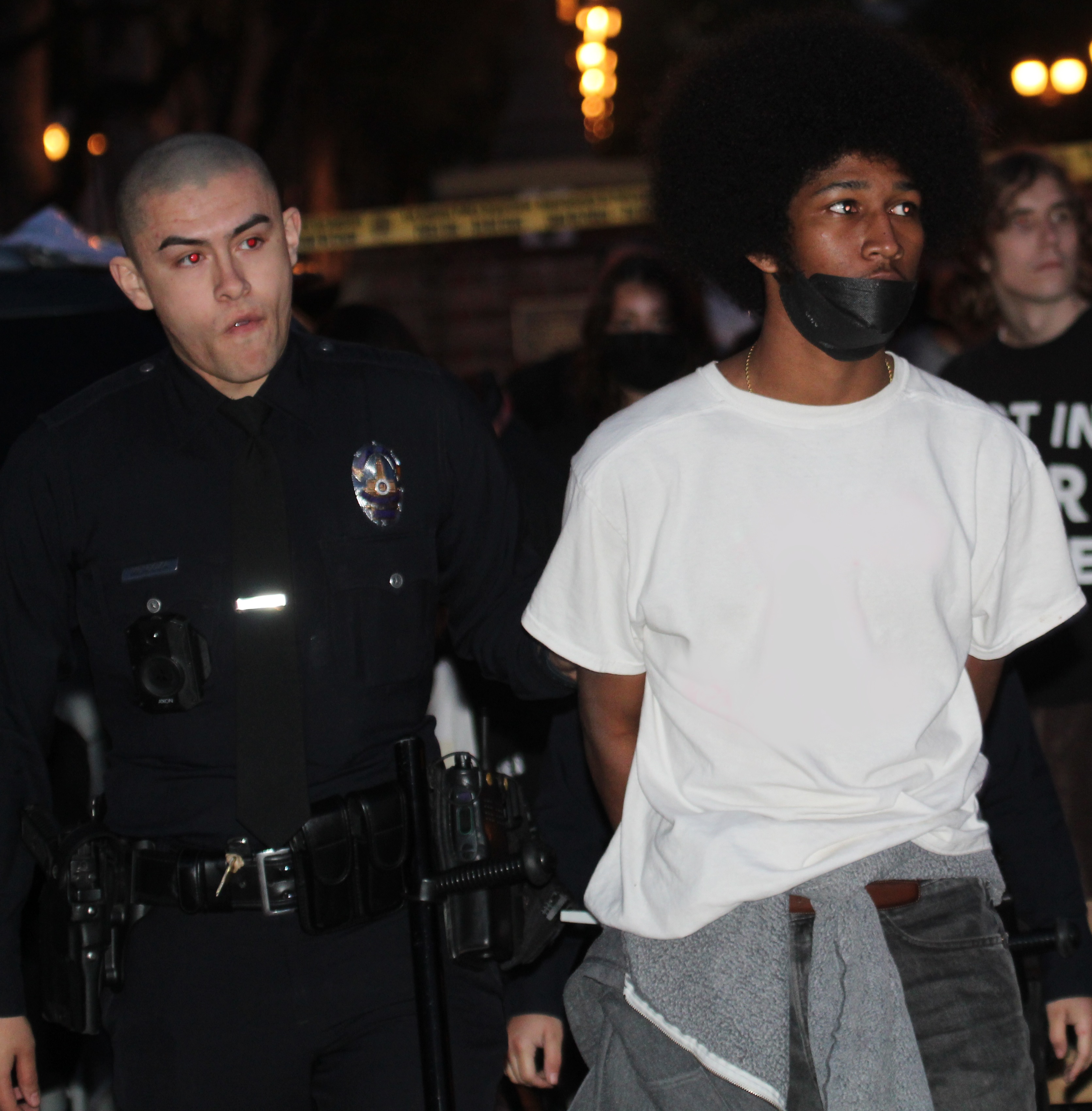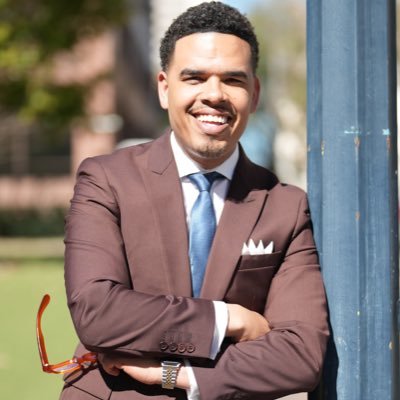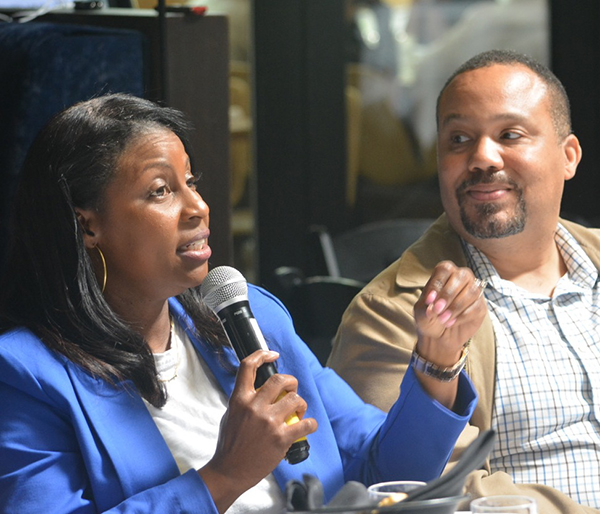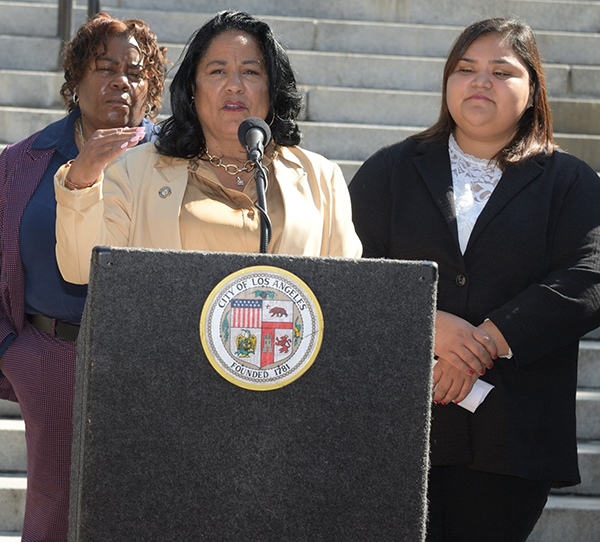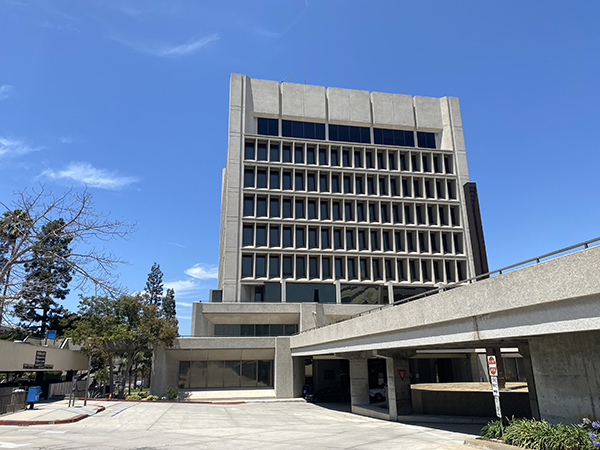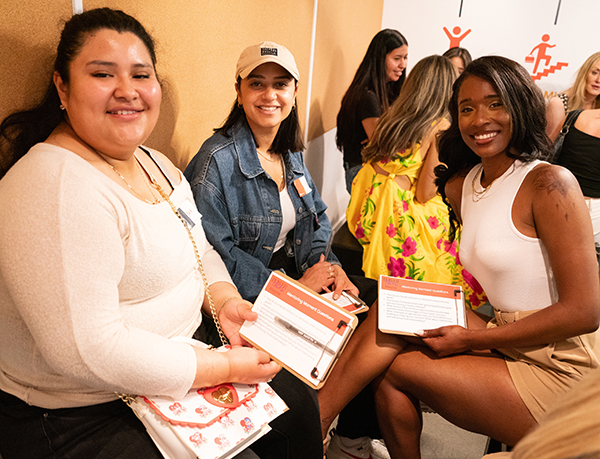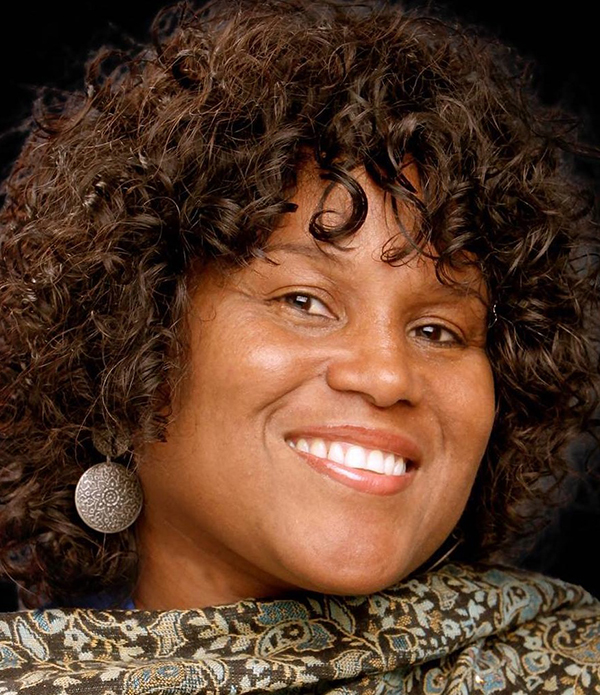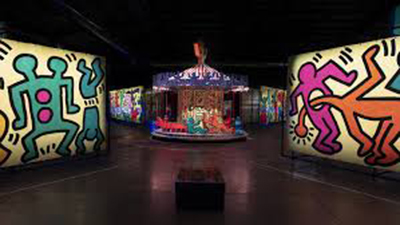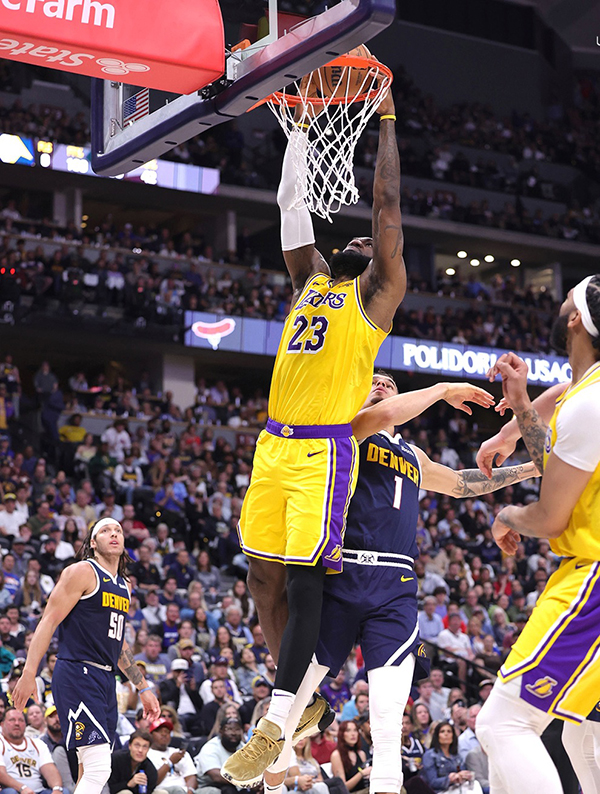
By Darlene Donloe
Contributing Writer
Delores Druilhet Morton has been the chief executive officer of Step Up since August 2019.
Initially, she didn’t apply for the position because even after 24 years in the nonprofit space, she didn’t think she was ready to be a CEO. It was one of her mentors who persuaded her to apply.
She did, got the job, and promptly took the reigns at Step Up with an ambitious agenda to move the organization forward.
Step Up, launched by Kaye Popofsky Kramer in her living room in 1998, is a nonprofit that, through structured mentorship programs, focuses on support and inspiring connections to help girls, and those who identify with girlhood, define and achieve their unique visions of success. There are branches of the nonprofit in Los Angeles, New York, Chicago, Dallas, Atlanta and Nashville.
On Oct. 6, the organization will celebrate its 25th anniversary by hosting its Inspiration Awards, honoring 25 mentors.
Honorees include: Carla Harris, a senior advisor at Morgan Stanley; Mellody Hobson, president and co-CEO, Ariel Investments; Mindy Kaling, actor, writer and producer; Lisa Ling, journalist; Jodie Turner-Smith, actor, activist and mother; Angel City Football Club founders; Mary Dillon, CEO of Foot Locker; Dany Garcia, CEO and chair of the Garcia Companies; Bianca Gates, CEO and co-founder of Birdies; Suzanne Lerner, co-founder, president and CEO of Michael Stars; Sonia Menon, chief operating officer of Neal Gerber Eisenberg; and Marissa Solis, senior vice president for global brand and consumer marketing for the National Football League.
Other honorees include: Serena Williams, famed tennis player and founder of Serena Ventures; Reese Witherspoon, award-winning actor, entrepreneur, producer, bestselling author and Step Up investor; Julie Bowen, actor, advocate and entrepreneur; Ebonee Davis, model, poet, actor and author; Amanda Gorman, poet; Yvonne Orji, actor and author; Halle Bailey, actor and singer; Amal Clooney, barrister and co-founder of Clooney Center for Justice; Allyson Felix, Olympic track and field athlete and founder of Saysh; Becky G, artist and singer; Valeisha Butterfield Jones, vice president for partnerships and engagement for Google; Gabrielle Union and Zaya Wade, actor and LGBT activists; and Beverly Williams, philanthropist and Step Up matriarch.
Since her time at the helm, Morton, 51, a Louisiana native who received a bachelor’s degree in English literature and a graduate degree in human resources management from Louisiana State University, has clearly met her own expectations leading Step Up into the future.
I recently spoke to Morton (DDM) about the importance of Step Up.
DD: Why did you decide to work with the organization?
DDM: I spent my entire career in nonprofits working on social justice issues. The organization was focused on girls and working with girls of color. I saw myself in them. I’m a first-generation college student. I identify with the girls we serve. I had informal mentors growing up. What we do is personal for me because I see myself in the girls. Step Up was a good next step for me career-wise.
DD: What did you want to accomplish when you took the reins?
DDM: I hadn’t heard about it before I was approached. It was a strong organization. I thought it needed to be more broadly known outside of the area the organization was serving at that time. I wanted to be able to take the work they did and bring it beyond the four cities. I wanted to take the walls off and bring it beyond those markets. The organization was only serving high school girls. Just because she finishes high school doesn’t mean she’ll have everything she needs to be successful in life. We needed scaffolding for them after high school. Support after high school is important. We’re open to all girls.
DD: You mentioned that at one point you didn’t want to apply for the job of CEO. Why didn’t you want to apply?
DDM: I didn’t see myself as a CEO yet. Like a lot of people, I suffered from imposter syndrome. I thought I had to pay more dues. My mentor encouraged me to apply for the role. She said when she saw the job, she saw me. “Who am I?” was the question. My mentor said, “Who are you not to?”
DD: Why is it important for girls and women to be successful?
DDM: When things go poorly in communities, girls are impacted the most. During the pandemic, when you think back, women and girls bore the brunt of that. They were caregivers at home. They are responsible for homeschooling. We bear the brunt of it in communities. They need to be supported in every way they can. Look at pay equity. There is inequity in all areas of their lives. More expectation is put on women. The reward is not the same. It takes a woman a year and a half to make what a man makes in a year.
DD: Is this program online or do girls go to a brick-and-mortar, or is the program conducted at schools?
DDM: It’s both. We have after-school programs for high school students. It’s virtual for students during the summer. For young adults, most are live virtually. They can join doing ZOOM. We also have a mentoring app. It’s like a dating service. Young women can go on the app and look for a mentor who best suits their needs. Maybe to learn about interviewing, or how to ask for a raise. We call it flash mentorship. They can have multiple mentors.
DD: What can you say about the 25 years of service?
DDM: When I joined, we were in four cities. We have since added Atlanta and Nashville and added virtual programming. We also added the app. There used to be one size fits all – now there are multiple paths to success. We support all of those paths. We encourage girls to go to college, but there are other paths — like trade programs which are also valid.
DD: You work with females 14-29. What is the significance of those years?
DDM: Age 14 is generally the age girls start high school. From 14-18, they are in high school. At age18-19, they are in the young adult program. Research shows 18 as adulthood. The research says it’s emerging adulthood. When they turn 30, we hope they return to Step Up as a mentor.
DD: On Oct. 6, you will have your Inspiration Awards at the Skirball Cultural Center. Why did you decide to do a list of 25 Mentors of the Year in honor of the 25th anniversary?
DDM: We had a committee of individuals from around the country. We set our profile of those we were looking for. They are those who set an example for us and who might not be my mentor directly, but we are learning from them. Our categories include mentors who inspire us to build skills, explore our interests, build our community, and cultivate community. We wanted a mix of folks who are known and unknown. It’s about how we can build skills and cultivate community.
DD: Describe the event.
DDM: We’re celebrating. It’s a party. We are celebrating the mentors and the 25 Next-Gen Leaders. It will kick off with a reception and a red carpet. People can connect over sips and snacks. It will be an awards program that will be inspirational. We want people to leave inspired to mentor and connect with young women and their lives.
DD: What do people need to know about Step Up?
DDM: Anyone can mentor. Visit the website. We are open and always looking for new ways to connect our teams.
DD: What is your biggest challenge as the CEO?
DDM: Maintaining and sustaining the work. Rising above the noise. Mentorship feels like a nice thing to do versus a necessary thing to do. The hardest thing I have is making sure people understand it’s necessary.
DD: What makes you most proud about the work you do?
DDM: I am most proud of the opportunities that I have to actually mentor. I’m not a CEO that just sits and looks at spreadsheets. I’m an actual mentor. I know girls by their first names. I’m proud of what I’ve accomplished. I’m proud that we survived the pandemic and came out stronger.
“Making a Difference” is a regular feature profiling organizations that are serving their communities. To propose a “Making a Difference” profile, send an email to newsroom@wavepublication.com.
Darlene Donloe is a freelance reporter for Wave Newspapers who covers South Los Angeles. She can be reached at ddonloe@gmail.com.

